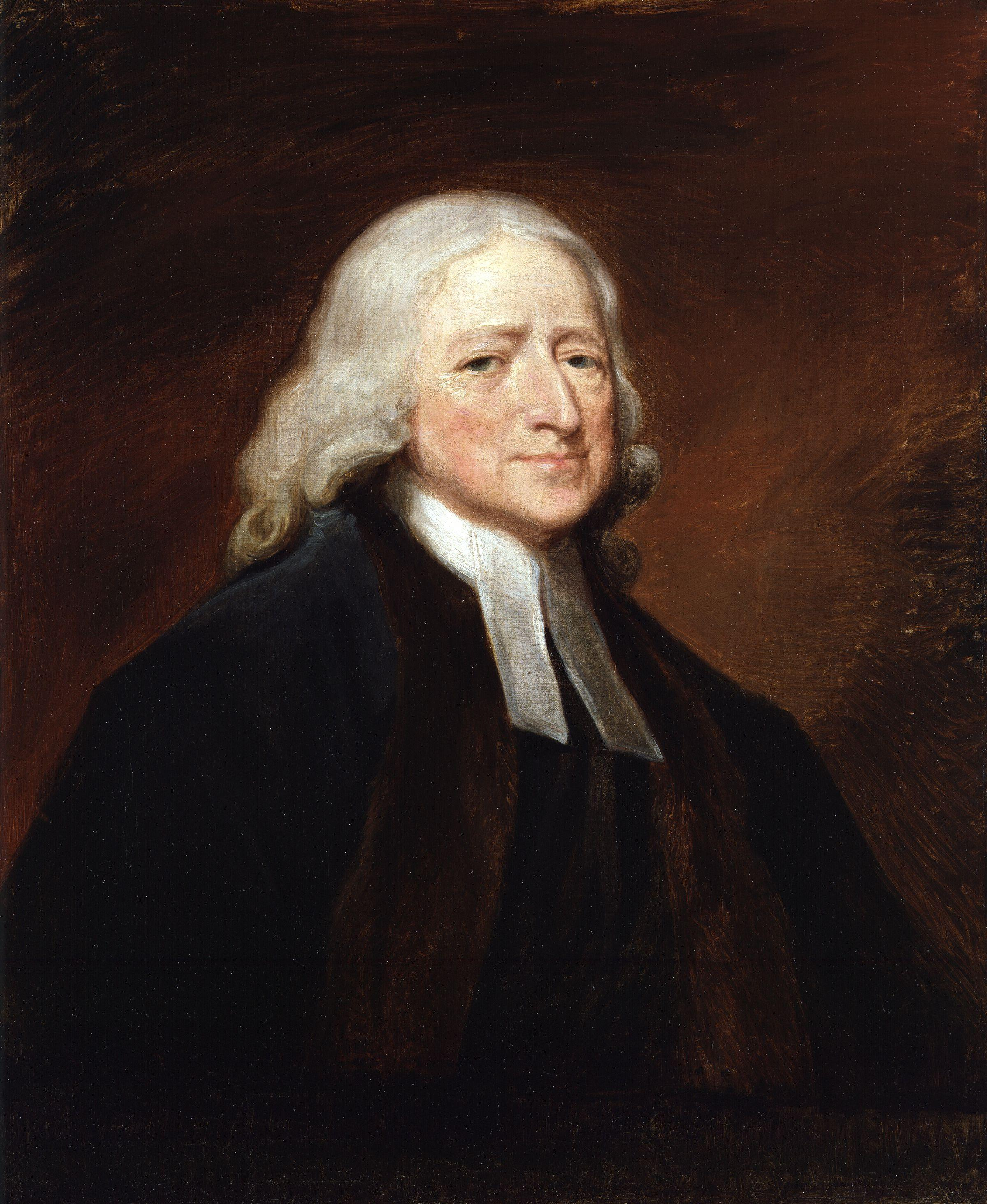John Wesley è stato un teologo inglese che ha fondato il movimento protestante del metodismo.
È commemorato dalla Chiesa anglicana il 3 marzo.
Il metodismo ha avuto tre tappe fondamentali: la prima all'Università di Oxford con la fondazione del cosiddetto Holy Club , la seconda mentre Wesley era curato nella città statunitense di Savannah, in Georgia, e la terza a Londra dopo il ritorno di Wesley in Inghilterra. Il movimento ha preso forma dopo la terza tappa, intorno al 1740 con Wesley, insieme ad altri, istituendo predicatori locali e le società religiose per la formazione dei fedeli. Questo è stato il primo grande movimento evangelicale della Gran Bretagna. L'organizzazione metodista di Wesley includeva società in Inghilterra, Scozia, Galles e Irlanda prima di diffondersi negli altri paesi anglofoni e non solo. Wesley ha diviso le sue società religiose in classi e gruppi per garantire istruzione religiosa e assistenza capillare a tutti, in special modo alle classi povere.
I metodisti, sotto la direzione di Wesley, sono diventati promotori di molte iniziative volte a garantire giustizia sociale, incluso la riforma della legge penale e movimenti abolizionistici. Wesley incentrò le sue riflessioni teologiche e spirituali su quella che chiamò perfezione cristiana, o santità del cuore e della vita. Wesley insisteva sul fatto che in questa vita ogni cristiano può giungere a uno stato dell'anima dove l'amore di Dio, o amore perfetto, regna supremo nel cuore di ogni persona. Insisteva continuamente sull'usare i mezzi di grazia quali preghiera, meditazione delle Scritture, Santa Cena, ecc. come mezzi tramite i quali Dio trasforma i credenti. Wesley a un certo punto della sua vita si staccò dalla chiesa anglicana e riteneva che anche il suo movimento avrebbe dovuto farlo.
Wikipedia
✵
17. Giugno 1703 – 2. Marzo 1791
•
Altri nomi
約翰衛斯理
